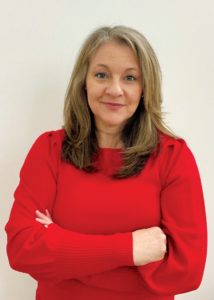Virtual Advocacy Day
By Brandi Felser, CEO

Advocating on behalf of those impacted by sarcoma has been a core principle of the Sarcoma Foundation of America’s mission since the organization was founded in 2001. The SFA continues to be actively engaged in the public policy arena, urging legislators and regulators to place a high priority on rare cancer research, drug development, and access to quality patient care. We are also actively engaged in coalitions like the Alliance for Childhood Cancer, the Cancer Leadership Council, One Voice Against Cancer and many others where we actively engage in advocacy letters to Members, action items and Advocacy Days.
April is National Minority Health Month (NMHM), a time to raise awareness about health disparities.
In sarcoma, as other diseases, data shows that health outcomes are worse for minorities and those in a lower socioeconomic status, who often are metastatic at diagnosis. The role of health insurance, or lack thereof, has a clear impact on health outcomes in sarcoma.
1: https://pubmed.ncbi.nlm.nih.gov/31838786/ https://pubmed.ncbi.nlm.nih.gov/29078908/ https://cebp.aacrjournals.org/content/29/11/2141.abstract https://onlinelibrary.wiley.com/doi/abs/10.1002/pbc.28708
I often see posts on Facebook groups and receive emails sent to SFA describing patients and family members who run into barriers accessing treatment and needed tests, treatment denied by the insurance company, or patients stating they simply cannot afford a particular treatment and need financial assistance. A sarcoma diagnosis is especially challenging because patients are encouraged to obtain treatment at a sarcoma center and to be treated by a sarcoma specialist. Many patients have to travel to a center and unfortunately, not all patients have the financial resources to do so. Many patients and families suffer the financial toxicity of a sarcoma diagnosis and must choose between treatment and daily needs.
When I started at SFA, I saw, in different places, sarcoma referred to as the “forgotten cancer.” I also saw many sarcoma advocates disagree with that term. Regardless of the language, sarcoma is disadvantaged. Sarcoma lacks research funding, awareness, and treatment options. Patients need access to healthcare and the few treatment options that do exist. The cost of treatment, lack of access to healthcare, and access to clinical trials are all on a long list of barriers to getting treatment necessary to overcome a sarcoma diagnosis.
In every survey SFA has done asking the community about priorities and needs, research funding is at the top of the list. As we conduct our scientific landscape analysis, it is becoming increasingly clear that sarcoma is being left behind in research funding. Rare does not mean less important, it just means fewer voices.
As I wrote in an article in July 2020:
Although rare means there are fewer voices, it does not mean that collectively our voice is not powerful. It does not mean that we do not have the power and strength as a community to bring about increased awareness, more and better treatment options, leading to a cure for sarcoma.
There are many issues important to sarcoma patients and family members, researchers, and medical professionals in our community. Let’s come together to address these issues and advocate for better outcomes for sarcoma patients.
To that end, SFA is hosting a virtual Advocacy Day July 21, during Sarcoma Awareness Month. If you would like to be a part of this day, and other actions we take on issues important to the sarcoma community, please sign up here so we can communicate with you and keep you updated. We are also organizing a public policy strategy stakeholder committee to assist with establishing public policy priorities and planning for the Advocacy Day. If you are interested in learning more about the committee, please sign up and SFA staff will reach out with more information.
Together, the sarcoma community can make our voices heard and educate our lawmakers and others on the needs of our community. Together, we can advance the priorities of the sarcoma community.


